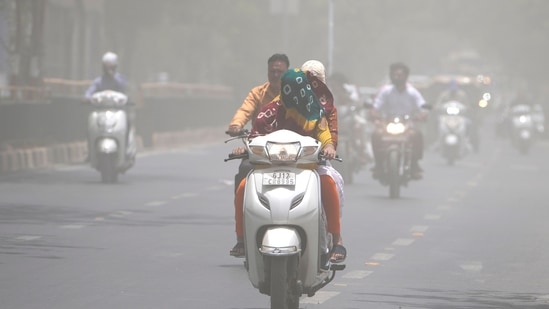Planet politics in the era of climate crisis
The article has been authored by Amar Patnaik is a Member of Parliament, Rajya Sabha, from Odisha
Ever since recorded history, human beings have taken the planet for granted. While droughts and fires might affect one region, it was assumed that life on earth was much the same year after year. That’s no longer true in multiple ways, as the pandemic is showing us today and the climate crisis will show us again and again at much more regular intervals, in an irreversible way.

March 2022 was the hottest March on record in India. Many parts of India will become uninhabitable if average global temperatures increase by 2 degrees Celsius, which is very likely if business continues as usual. The climate crisis is an existential threat of a kind we have never experienced as a species. We have had an extractive relationship with the earth and have not given back at all. We need to create a system which leaves space for the earth to regenerate on its own so that it can continue to nurture future generations. Inter-generational equity can only be ensured if nature is looked after in every aspect of natural resources--land, water, forests and the communities’ relationship towards all of these.
To take the example of water, the United Nations has estimated that more than five billion people will be affected by water scarcity by 2050. This is already evident in India which is heavily dependent on agriculture. According to the World Meteorological Organization (WMO) in 2021, India is at the topmost hotspot of terrestrial water storage loss (TWS), having lost TWS at a rate of three to four cm each year, the highest loss recorded after Antarctica and Greenland. If this situation prevails, India will continue to face extreme water stress.
To address these concerns, we need a new politics, a planetary politics that takes the flows of carbon into account in the formulation of policy at every level: District, state and country. The second thing is to make use of new technologies, both of the usual energy saving devices kind but also local innovations such as grassroot practices drawn from our own traditions which can meet the need for growth without affecting the environment and the resource base of communities.
All of these interventions, however, need a baseline of measurement for whatever can’t be measured or evaluated for efficiency and performance. Consider the issue of air pollution. While it’s true that air pollution causes ill health and death, the causal relation is poorly established and even more poorly communicated. Our goal should be to make the dangers of air pollution clear to people in local languages; that it can kill them or increase their vulnerability to other health issues. Once that message is sent out, the people themselves will act on the issue. We saw that communication in the case of the pandemic. As a result, everyone, including people in the remotest villages were stringent in applying regulations because they believed that the disease was going to kill them otherwise. In the absence of that communication, causal relationships are hard to establish and communicate when we discuss environmental issues and the harmful effects are likely to manifest themselves after a few years by which time it’s will be too late to rectify them. The absence of data platforms that help establish causation is hurting our capacity to be sustainable and to make visible progress on our climate commitments.
Therefore, we need an accounting system of capturing and measuring carbon data for all human activities. We are all familiar with financial balance sheets with their sources and their applications. What if the same thing is done for carbon? Once we are able to do that, every company should be able to produce along with their financial balance sheet their carbon balance sheet also. When we file income tax returns, we should file carbon tax returns. Once we have such an accounting system, we can set targets, make predictions about future emissions reductions and track our progress against those goals. Once such a platform comes into play, we will have the opportunity to reimagine the entire economy, including new technologies and new forms of collective action.
Carbon politics will not only help us meet our commitment to becoming net-zero by 2070, it will also help us create new livelihoods and new forms of organising our economy and society. Everyone understands Gross Domestic Product growth and more recently, alternative measures such as Gross National Happiness are also becoming popular. By making transparent the carbon footprint of human activities, we open up the possibilities of new forms of public discourse and an alignment between development and ecological sustainability.
India’s future tied to the planet’s future and we have the opportunity to enact policies and create infrastructure that will make us a world leader in climate management. If we manage to do so while also fulfilling the aspirations of our young population we will have achieved an enviable outcome. We are at the threshold of a profoundly transformed society, in which the earth is no longer the passive background against which human dramas are played but an active agent in influencing the future of human civilisation.
Can India take the lead in this transformation?
(The article has been authored by Amar Patnaik is a Member of Parliament, Rajya Sabha, from Odisha)



